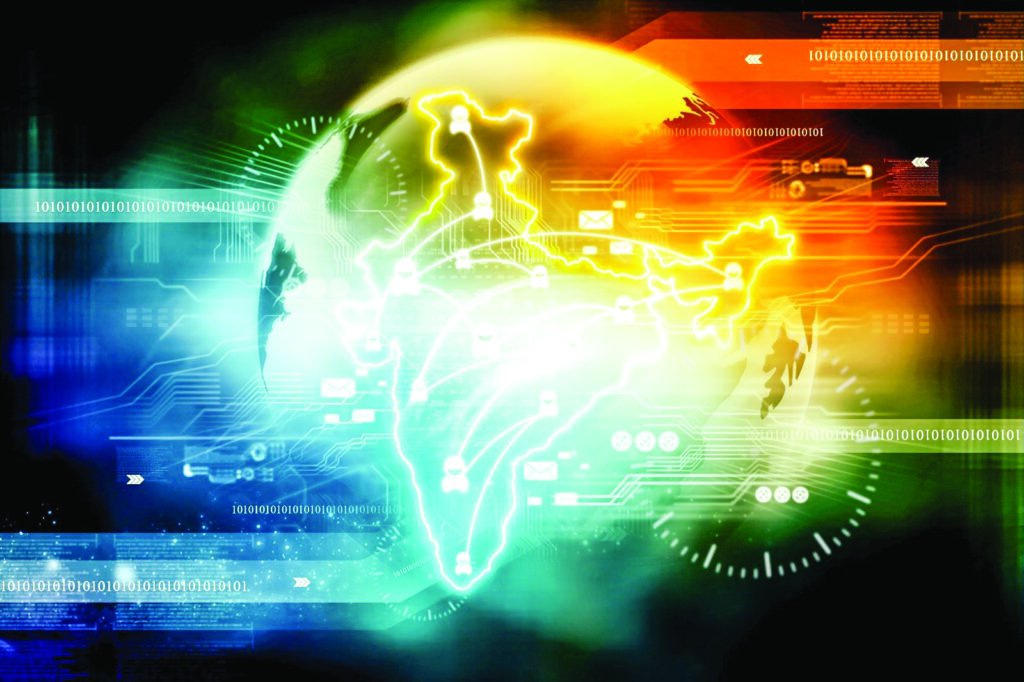In the last few decades, India has witnessed a profound transformation in its Information Technology (IT) ecosystem, a shift that has reshaped the nation’s economy and societal structure. From the adoption of groundbreaking technological innovations like GST, UPI, and direct fund transfer schemes to the modernization of sectors like education and work culture, India has experienced an IT-driven revolution. This article explores how India’s role in the global IT landscape has evolved and how the country can continue to leverage its technological prowess to foster growth and become a hub of innovation for the world.
The Evolution of Computers and IT: From Turing’s Vision to India’s Reality
The journey of Information Technology traces its origins back to 1936 when British mathematician Alan Turing introduced the concept of the Turing machine. This invention laid the foundation for modern computing, paving the way for machines that could process information systematically. Turing’s groundbreaking work on algorithms and computation theory established the blueprint for the computer, the device that would ultimately revolutionize industries and societies globally.
Although computers were initially limited to academic and military applications, their potential was soon realized in the broader context of communication and data processing. The advent of telecommunication further unlocked the possibilities of interconnectedness, creating a framework for Information Technology (IT) as we know it today.
The global shift towards IT, however, did not come without challenges. The turn of the millennium, marked by the Y2K bug, posed a significant challenge to the world, especially in the realm of computing. It was feared that the transition from the year 1999 to 2000 would cause widespread system failures. At that time, many countries, particularly the United States, turned to India’s IT expertise to solve this critical problem. The ability of Indian programmers and IT professionals to address the Y2K bug not only showcased the nation’s technical capabilities but also set the stage for India’s rapid rise as an IT powerhouse.

India’s Emergence as an IT Powerhouse
India’s IT revolution began in earnest in the 1990s, fueled by a combination of factors, including economic liberalization, globalization, and the rise of the internet. These factors aligned to position India as a global leader in IT outsourcing and services. The Indian government’s decision to open up the economy to foreign investments, coupled with the country’s highly skilled workforce, created a fertile ground for the IT industry to flourish.
Indian cities like Bangalore, Hyderabad, and Chennai emerged as global IT hubs, attracting multinational companies and serving as the epicenter for global tech solutions. India’s young, tech-savvy population, combined with a large pool of engineering and software development talent, became the cornerstone of this growth. Major IT companies like Infosys, Tata Consultancy Services (TCS), and Wipro became household names not just in India, but across the world, delivering software services and technological solutions to some of the most prominent organizations worldwide.
This exponential growth in the IT sector not only fueled India’s economy but also helped the country build foreign reserves and generate millions of jobs. The rise of India’s IT industry also led to a transformation in the country’s social fabric, providing opportunities for education, empowerment, and economic mobility to millions of people.
IT and India’s Changing Economy
India’s IT revolution was pivotal in the transformation of the country’s economy. The sector played a crucial role in changing the nation from a largely agrarian economy to a knowledge-driven economy, with information and technology becoming the primary engines of growth.
One of the landmark milestones in India’s IT journey was the development of Digital India, a program initiated by the government in 2015. This initiative sought to bridge the digital divide, improve online infrastructure, increase internet connectivity, and make government services accessible electronically. Digital India significantly improved the accessibility of information and services, while also enabling the seamless delivery of government benefits to citizens through Direct Benefit Transfers (DBT).
India’s Unified Payments Interface (UPI), launched in 2016, is another example of how IT has reshaped the economy. UPI revolutionized digital payments, making financial transactions more accessible, efficient, and secure for millions of people, even in remote areas. UPI has facilitated the growth of a cashless economy, providing a platform for financial inclusion and allowing India to become a global leader in digital payments.
At the same time, Goods and Services Tax (GST), a technological overhaul of the country’s taxation system, streamlined indirect taxes and made tax collection more transparent and efficient. These initiatives have not only improved the ease of doing business but also contributed to India’s economic growth by simplifying previously complex systems and making them more accessible to businesses and individuals alike.
The Rise of Artificial Intelligence (AI) and India’s Role
The most recent and transformative development in the IT ecosystem is Artificial Intelligence (AI). AI is set to redefine industries across the globe, and India, with its robust IT infrastructure, is positioning itself as a leader in this field. Indian tech companies are at the forefront of developing AI-driven applications in fields such as healthcare, education, finance, and agriculture.
India’s vast data ecosystem and rich pool of talent make it uniquely poised to harness the power of AI for innovation. The government’s push towards digitalization, coupled with a supportive regulatory environment, has created an ideal ecosystem for the development and application of AI technologies. The focus on AI and machine learning also opens up new opportunities for businesses and individuals, creating jobs, driving economic growth, and improving the quality of life for millions.
India’s Global IT Leadership: Vision for the Future
As India continues to solidify its position as an IT leader, it is not only driving local economic growth but also playing a crucial role in global technology trends. The country has become an essential player in global supply chains, with Indian IT professionals contributing to a wide array of industries across the world. Indian companies are leading the way in cloud computing, cybersecurity, blockchain, and big data analytics, providing innovative solutions to challenges faced by businesses worldwide. Looking to the future, India’s leadership in IT is poised to grow even stronger. The country has the opportunity to become a global IT power hub, not only serving the needs of developed nations but also helping developing economies leverage technology to drive their own growth. India’s values of Vasudhaiva Kutumbakam—the idea that the world is one family—are deeply ingrained in its approach to technology. The country’s commitment to sharing knowledge, promoting inclusivity, and providing technology-driven solutions to global challenges reflects these values.
Moving Forward with the Indian Spirit
The future of IT in India is bright, and the country stands at the forefront of technological innovation. With its rich history, resilient workforce, and commitment to development, India has the potential to lead the world into a new era of digital transformation. The rise of AI, blockchain, and other emerging technologies presents a tremendous opportunity for India to continue its growth trajectory while helping the rest of the world tackle its most pressing challenges.
In conclusion, India’s journey from a developing nation to an IT powerhouse is a testament to the transformative power of technology. The nation’s achievements in the IT sector, from solving global challenges to revolutionizing its own economy, demonstrate the immense potential of harnessing technology for the collective good. As India continues to lead the charge in the 21st century, it is clear that the future belongs to those who are willing to embrace the opportunities presented by technology and innovation.
Through collaboration, inclusivity, and the spirit of Vasudhaiva Kutumbakam, India is poised to shape the world’s future—one byte at a time.













